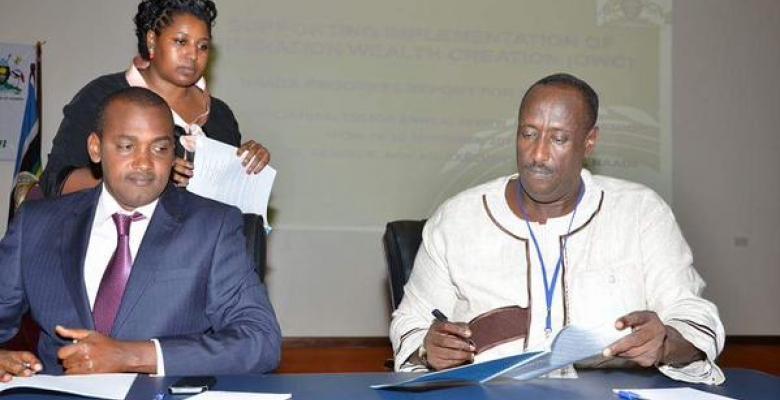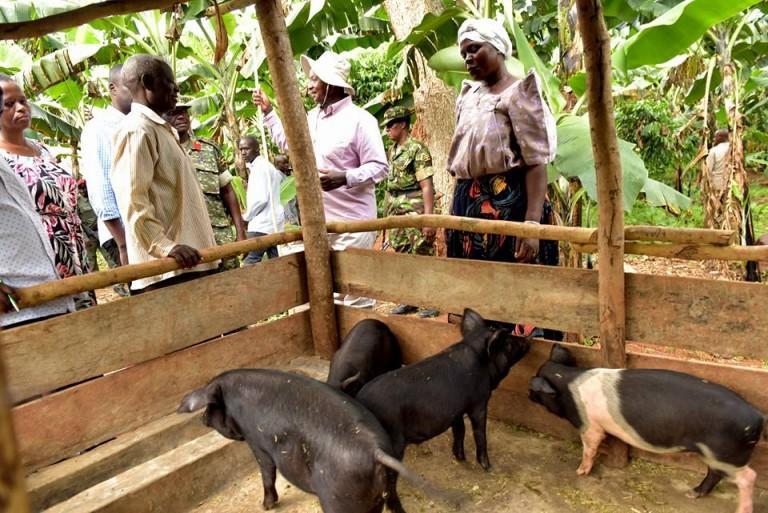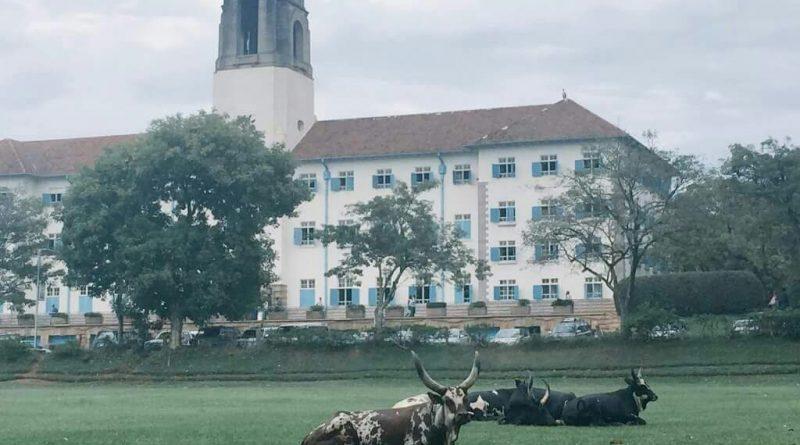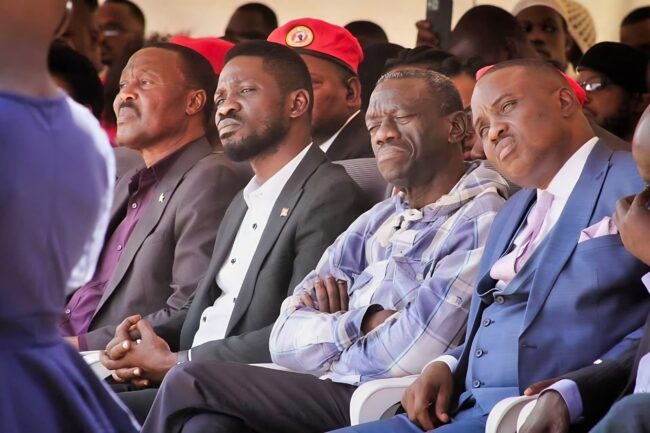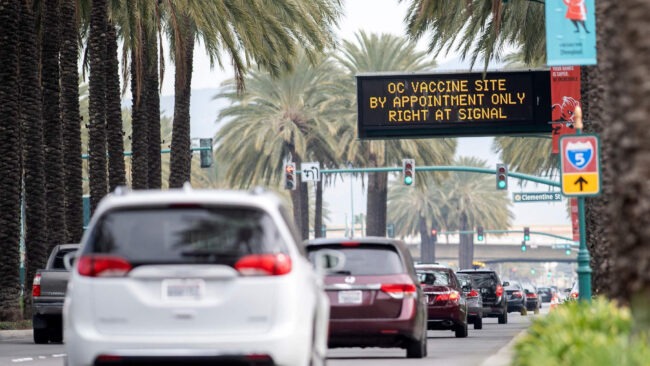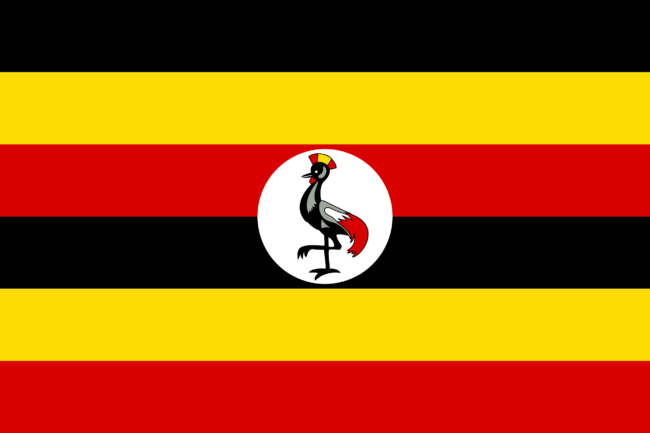Media › Forums › The Uganda Useless Elite Class › Yoweri Museveni is the Biggest Parasite in Uganda
- AuthorPosts
- February 13, 2017 at 11:28 am #313
DISGUSTING
”””””””””””””””
MUSEVENI AND HIS ASSOCIATES STEAL OUR MONEY AND SEND THEIR CHILDREN TO FOREIGN UNIVERSITIES IN INDIA, UK ETC, AND THE CHILDREN OF THE POOR WHO SELL EVERYTHING THEY HAVE AND PAY AT MAKERERE TO STUDY,ARE DISPERSED AND SENT TO THE STREETS BY POLICE AFTER THOSE WHO TOOK THEIR MONEY REFUSE TO PAY THE LECTURERS…THIS IS UNACCEPTABLE.I CALL UPON ALL UNIVERSITY STUDENTS TO STAY AROUND KAMPALA, AND ORGANISE AND GO AND DEMAND EDUCATION FOR THEIR MONEY..THIS IS OPEN ROBBERY.
February 13, 2017 at 11:30 am #314THIRTY YEARS OF SO CALLED STABILITY AND WE CAN’T RUN A LEADING BANK?
HOW IS IT POSSIBLE FOR A BANK TO BE SO LOOSE THAT IT RECENTLY ALLOWED THE WITHDRAWAL OF OVER 3 BILLION SHILLINGS UNDER 72 HOURS?
THIS MEANS SOME EXTERNAL LOCAL FACTORS GOVERN THIS BANK
WHERE IS THIS COUNTRY GOING,WE SHOULD NOT SIT AND WATCH CYNICAL PEOPLE AND OBSERVERS TO LEAD US ASTRAY AS WE WATCH.February 13, 2017 at 11:32 am #315Yoweri Museveni and the likes should not talk about the law at all. You have never followed any law yourself so stop telling judges what and how to judge. Your statements are illegal and criminal and are a breach of our constitution. The president has no powers to threaten or punish or charge judge for finding in anyway they find . on the other hand the judiciary and any independent judge has the power to admonish the president when he acts illegally or is in abuse of the constitution. Don’t tell us what the law is or should be, we tell you what the law is because we are learned in the law. In matters of military murders you can talk because as a military man that’s your area. Ie how to kill people before taking them to court. However after someone is in court, then leave issues of the judge to the judges
February 13, 2017 at 11:33 am #316February 13, 2017 at 11:34 am #317WHY THE Yoweri MUSEVENI REGIME BREAKS INTO PRIVATE OFFICES

There has has been a consistent trend of mysterious breaking in into private offices of mostly NGOs and CSOs that are dealing witawh matters of human rights and social justice. Since 2012 there has been more than two daaozens of break in into the offices of these NGOs. Among the NGOs that have already fallen victim are: HRAPF, HURINET UG, ACCU, FHRI, EHARDP, AGHA, HRNJ UG, ACFIDE, ULA, Muwema & Co. Advocates, Mbabazi & Co. Advocates, The Observers newspaper, and others. In July 2014 the IGP claimed to have instituted a special probe into the vice but the findings have never been made public. Instead the vice has continued unabated with the most recent being the offices f The Observer newspaper, HRPA offices, and the premises of the two legal firms that were representing an election petition against Museveni’s purported victory. Following the attack on HRPA offices where by even the guard was killed and the security cameras captured clear images of the assailants, the CSOs issued a statement decrying the selective attacks and called on the regime to carry out swift and transparent investigations. In all the incidents the attackers target computers, hard copy files, note books, cameras, that are stollen after thoroughly ransacking of the premises.
These NGos and CSOs have been at the forefront of monitoring and exposing human rights violations, poor service delivery and abuse of office by state institutions and and regime functionaries. On the contrary, these vices are the lifeline for the regimes survival – instilling fear, impoverishment, and economic deprivation. The regime has repeatedly expressed its discomfort with the operations of these NGOs. It has even proposed a law to regulate their operations and source of funding. It has openly accused them of being agents of destabilization by foreign powers. The regime has repeatedly gone ahead to link them of being artisan and linked to internal political opposition. Within the structures of the Internal Security Organisation (ISO) there is a fully fledged department of that vets and monitors NGOs through the National NGO Registration Board. In civilised nation states, such covert raids on premises of suspected criminal offenders and those threatening state security is a normal practice. In Museveni’s Uganda where the definition of state security has been reduced to mere maintenance of status quo, anyone towing that line is a potential target. Before the development of electronic information management gadgets, intelligence outfits used to target briefcases of the target victims. The likes of the late Basoga Nsadu who had excelled in ‘splitting beans’ on the floor of parliament and Teddy Ssezi Cheye who ran the atom splitting tabloid, the Uganda Confidential were such victim in the 1990s. Hired goons would simply snatch such briefcases on a busy street in broad daylight. Some of residential burglaries on targeted individuals are part of such covert intelligence operations aimed at acquiring information but at the same time instilling fear in the victim and the public.
Therefore, the break in into offices of NGOs is masterminded by the regime in order to gain access to information pertaining to their source of funding, their human sources of ‘classified’ information, and possible links with political opposition. Given the prevailing political situation, it is anticipated that more of such raids are in the offing.
February 13, 2017 at 11:36 am #318From fetching water on bicycles to closing universities. .This man must be crazy. Instead of giving Sudhir 200b shillings why cant he pay the teachers salaries at campus..This govt deposited 100m shs in each of the 431 mps why cant it deposit money to the lecturers accounts..And you makerere university where do u put the money u correct from students?
February 13, 2017 at 11:41 am #319ordinary Ugandans Will not survive the current economic environment

Reasons Why Uganda’s Economy is in a Sorry State
By Prof Augustus Nuwagaba (PHD)
The main talk in every corner of Uganda is the question whether the ordinary Ugandan will survive the current economic environment. I want to begin on a positive note that with God’s grace, people will make it through the hardships. Ugandans have survived more hardships before and even this, we shall survive though many may be wounded. Let’s keep hope alive. What is the problem?
To begin with The first problem is the structure of Ugandan economy, The country’s GDP (monetary value of all goods and services in Uganda per year) is estimated at USD 25Billion. But where does this GDP come from? It is from the service sector largely telecommunications (44.3%), but ironically, the service sector employs a paltry less than 1% of the population. The agricultural sector which employs 76% of the population ironically contributes only 23% of GDP.
This means that the sector which is clearly the most economically endowed and therefore capable of creating jobs and broad based growth is surprisingly incapable of doing so. It is this contradiction that the country continue to enjoy growth but which leaves out the majority that remain with low incomes, hence low aggregate demand. One can argue that the UK, or USA economy has agriculture contribution of less than 2% of the GDP. This is correct but remember the peoples also engaged in agriculture sector in these countries is actually less than 1%! So, there is no contradiction:
Solution: There is deliberate need to re-structure the economy, provide long term financing in the agricultural sector, increase investments, improve seeds, fertilizers, irrigation and production infrastructure, marketing, research, land access, agricultural mechanization and value addition.These cannot be done by the private sector. The scientific laws dictate that water flows by gravity along a slope, but if you want it to ascend a hill, you pump it. Therefore, the government will have to invest in such hardware, because the private sector will not invest in such investments. They prefer easy software like the service sector.
Secondly problem of the Ugandan economy is what we refer to as low financial depth. There is low saving to GDP ratio of a paltry 13%. The banked population is 8.3% (commercial banks) and 68% remain in non-monetary sector (subsistence production) In Uganda, we have narrow financial asset base. We do not have wide sources of financing economic enterprises.
For example, our commercial banks (25 of them) do not have access to favourable financing sources. National Social Security Fund (NSSF) for example, could have widened financial access, but it has remained cautious with investments largely in government securities. In countries like Singapore, and Kenya, the pension sector is well developed and NSSF funds are available and these institutions lend both government and banks which in term lend to borrowers at lower rates. Kenyan financial depth is 63% while Uganda remains at 27%, indicating a very narrow base, hence use of expensive money which drives interest rates high.
Solution: There is need to liberalize the pension sector through creation of competition with NSSF. This will enhance financial depth, hence, avail long-term and cheaper capital to financial institutions especially commercial banks. However, the danger here is the credibility of the players given the sensitivity of pension funds. If the people have no trust in players other than NSSF, the whole game will not work.
Thirdly problem is fiscal policy management. This emanates from three major elements that is High domestic borrowing by government. This currently stands at UGX 10.48 tn. The impact of this is that it makes government borrower Number 1, which effectively crowds out the private sector. For starters, government borrows through issuance of government securities (treasury bills and bonds with interest rates ranging from 14-15%) and this sets the bench mark for Commercial bank interest rates. There is no commercial bank which will ever charge an interest rate below the rate charged on government securities. It is this factor that hikes interest rates in commercial banks. In Uganda, the average interest rates has been 26%. In Rwanda it is 16%, in Botswana, 7%, South Africa 10%, UK 1.2%, while Japan is 0.9%!!!!
Solution: I can bet that if government stopped domestic borrowing, commercial banks would be on streets looking for people to lend, and they would not find any at the current interest rates, hence, would be forced to reduce interest rates drastically. Still on fiscal policy side, there is an issue of government expenditure. Currently, the flagship sector is infrastructure comprising of energy, roads, and railway.
Focusing on infrastructure is good because as a country, we have very serious infrastructure deficit. No one can dispute the long term multiplier effects of infrastructure investments. The only problem is that infrastructure development can enhance growth but if the implementing country takes conscious decisions regarding contract management. There are very many infrastructure projects going on but largely by foreign companies. This is not bad given the good will particularly the securing of funds from countries where these companies come from.
However, what should have been done is to carefully study the contractual provisions and incorporate important “local content” clauses in the contracts (Karuma, Isimba, roads, oil pipeline, and refinery). These contracts should have for instance stated that the contractors must use a certain percentage of local materials and labour. If contracts are left open as seems to be the case, these projects will most likely result in excess importation of materials and labour, culminating in more balance of trade problems and even dumping. Lack of utilization of local labour and failure to purchase local materials results in low aggregate demand, as local people will not earn income from such projects and this is exactly what is happening right now.
Solution: Government need to clearly scrutinize infrastructure contracts and ensure local content in implementation of infrastructure projects. It is this very factor that rapidly transformed Singapore’s economy in 1970s and 80s. The adherence to local content in the construction industry by foreign companies enhanced aggregate demand, hence, creating phenomenal economic growth which was unprecedented in Singapore, propelling the country from a Per Capita GDP of USD 321 in 1959, to the current Per-Capita income of USD 56,000.
Delay in payment of suppliers to government. Many people who supply government with goods and services take long without being paid. Currently, the domestic arrears are estimated at UGX 1.3 tn. This factor contracts business as people will not have money to purchase goods and services, hence, slow growth as we saw in FY 2015/16 as the economy contracted from 5.0% to 4.8%.
Solution: There is urgent need for government to make good her obligation and promptly pay for goods and services provided by local business entrepreneurs. It is definitely not correct to insist on controlling inflation by way of not paying suppliers. This instead “kills” economic activity, kills self-motive incentive and dampens growth. The best way to control inflation would be from the supply side, through increased production which will cause prices of goods to plummet.External shocks. The major issue here has been the slow growth in China and the global fall of commodity prices. The major fall here include drastic reduction in prices of minerals and agricultural products. When this happens, given the structure of Uganda’s exports, then, Uganda as a country earns less export receipts. This happened at the backup of increased import invoices, hence, deterioration in the balance of trade, resulting into current account deficit, which negatively affects the exchange rate. In recent months, everyone has seen the depreciation of the Uganda shilling against major currencies especially the USD. Solution:
The only way to solve this problem is increasing production and productivity and enhance value addition which would increase export sector performance. The depreciation of the shilling would have been a great advantage if Uganda was a net exporter. This would mean that our manufactured products would be very competitive in foreign markets. Unfortunately, we are a net importer (import more in value than we earn from exports) and hence, suffer from persistent Balance of Trade deficit, which is a serious blow to our Balance of Payments (BOP) and hence, complicating the exchange rate. The depreciation of the UGX against the USD is party the reason for the high NonPerforming Loans (NPL) in commercial banks, estimated at UGX 906Bn in FY 2015/16, hence, distressing many commercial banks. This is because importers borrow money in UGX, but exchange into USD, in order to pay for the imported goods only to discover huge losses due to depreciation of the domestic currency.
Supply side constraints. These refer to natural factors such as drought which has already affected food production. While government has projected growth at 5.0% in FY 2016/17 estimated to increase to 6.0% in FY 2017/18, these projections can only be ascertained if one is in control of all the factors of production. Unfortunately, we depend on God and the rains have delayed and as recently reported, seeds given to farmers under OWC dried due to lack of irrigation systems. This was very unfortunate. The result will be high food inflation which will have a systemic effect on overall Consumer Price Index (inflation) and high cost of living.
Solution: There is urgent need to invest in irrigation systems and agricultural production infrastructure so as to control production and food supply, which is the major driver of inflation. This cannot be done by the private sector.Establishment of long term financing sources. This issue has been a subject of debate for a long time. The issue emanates from the fact that as a country, we lack robust sources of financing long term investments. You find entrepreneurs using short term financing sources for long term investments. For example, it is not possible to finance most agricultural enterprises through short-term loans from commercial banks. Similarly, you cannot invest in a Shopping mall or Steel Rolling using financing sources from commercial banks. Actually, out of the estimated UGX 906 Bn NPL from all the 25 commercial banks in Uganda, 16% of the entire NPL portfolio was invested in Agricultural related enterprises. This shows the risk for commercial bank lending to agro-based entrepreneurs. Remember, high NPL increases risk for subsequent loans, hence, further hikes interest rates.
Solution: Establishment of long term financing sources. This should be done by re-capitalizing Uganda Development Bank (UDB). My other suggestion to government has been to establish an Agricultural Bank which would pool financing capital through listing on stock exchange. The “best practice” in this matter is the Agricultural Bank of China (ABC) which pooled USD 26 Billion (equivalent to Uganda’s total GDP) and is the 4th largest bank in the world. Interest rate in this bank is less than 1%. There is need to restructure agricultural production. The sector must be reorganized, revitalized from consumption based agriculture to commercial agricultural production. There is also need to re-package agro-based production and create value addition, guarantee marketing, storage and post-harvest management. This has to be done along the lines of organized groups that generate high production, mechanization and marketing.The Writer is an International Consultant on Economic Transformation in African Region.
February 13, 2017 at 11:45 am #320Makerere University has been taken over by cows

Apparently the freedom square for Makerere University has been taken over by cows following the closure of the university, stray cows have been seen loitering around the whole campass from the Ivory tower to the main library then take a rest in the freedom square.
Meanwhile President Museveni has proved to the rest of the country that indeed this is Kisanja Hakuna Mchezo after he closed Makerere University, he described the acts of lectuerers as Barbalic, flimsy and indiscipline.
Museveni who addressed a Press Conference at Kawumu State Lodge in Luweero District said the striking lecturers are simply undisciplined because they clearly know that government has not refused to pay their salary arrears as there is already a commitment to have it cleared.
“We cannot tolerate this indiscipline by the lecturers. We cannot be held at ransom by the striking lecturers yet government has many other development programmes to deal with. This type of indiscipline and attitude will not be tolerated. This is Kisanja Hakuna Mchezo and we have taken a decisive action,” Museveni roared.
Museveni who did not elaborate on the way forward after the closure of the University said “the owner of the home does not paralyze his own activities. Strikes are not a good way of resolving things,” Museveni said.According to him, government is committed to improving the welfare of lecturers through increased salary and incentives.
“Our target is to ensure that a professor earns Shs15 million from the current Shs8 million,” he added.
The President said his decision to have the University closed was because the University Council had approached him to use his powers as the President to temporally close the University since the lecturers were striking over simple matters.February 13, 2017 at 11:47 am #321
Following the directive of dictator Yoweri Kaguta Museveni to close Uganda’s historical Makerere University over the impasse between lecturers and University administration, students have been seen in the capital city Kampala streets stranded with no transport back to their respective villages.
This comes after Police gave them few minutes to have vacated their halls of residence to go and look for other residences not around the vicinity of the University, students from far districts of Northern, East and west some were seen pondering their next move on how to meet their transport costs given the fact that the semester was coming to an end. This didn’t spare even foreign students.
According to Felix Kaawesi the Police Mouthpiece opined that foreign students should contact their respective embassies for rescue. Sources have revealed to us that most students especially ladies, out of desperacy decided to storm night clubs and bars with Sugar Dadies to shade off their stress all nigh long.
This comes after last ditch attempts by the MakerereUniversity Council to end the lecturers’ strike on Tuesday by offering to pay lecturers’ incentive allowances for one month immediately following a crisis meeting.Students joined the strike on Tuesday after lecturers under their umbrella body Makerere University Academic Staff Association (MUASA) on Monday resolved to continue their strike until sh32b in allowance arrears over eight months is paid.
During the general assembly of lecturers at the School of Education, they unanimously endorsed the decision to continue the strike in a move they said would solve Makerere’s financial problems once and for all.February 13, 2017 at 11:49 am #322I think Uganda has the most irrelevant journalists on the continent; our journalists are easily diverted by mere simple stories faked by this good for nothing regime; take for instance just of recent the gov’t has allocated 200BN to crane bank to “bail it out” So Museveni realized there would be un uproar from the masses; what did he do? he went to Luweero with a 20 ltr jerrcan plus his bicycle “manyi ga kifuba” mbu he’s teaching the locals economical methods of irrigation; Makerere university was closed because of lecturers’ salary arrears amounting to shs. 28BN, radiotherapy machine in Mulago cancer Institute requires replacement and up to now it has never been done so and cancer patients have been left with an option of speeding up their death but remember it requires less than 10Bn if am not mistaken. Now the media has completely neglected the crucial stories and are dwelling on non pertinent stories sijui Museveni in Luweero irrigating.
February 13, 2017 at 11:50 am #323A teso For Uganda President

Is there also national cake sharing in Uganda today, during obote’s time good roads were build mostly in central northern was left out , good factory was in eastern and central north was left out , very many few key ministry was headed by langis more by bagandas acholi and easterners , he refused to mary alangi nor acholi or a kumam but a muganda , he kissed the ground in bushenyi not northern Uganda why coz he love westerner equally , he trained those of museveni , bank of uganda boad of director mutambile was his boy, we a Ateso where are we? What about kumam? Next Ateso must take this country. . .
February 13, 2017 at 11:53 am #324
Ugandans, If you are working without Pay for 4-6 months, what is your strategy? What are you teaching your children? That it is okay to suffer in silence as your Rights are being abused? Your children expect more from you. Children learn alot from copying their parents and from their surroundings. Do not lower your standards just to survive. Give the children reasons to dream big….Dreams are what built the great cities around the world. Ambition is the driving force in success. Please wake up…it is soon the end of 2016!!!!
February 13, 2017 at 11:54 am #325February 13, 2017 at 11:55 am #326Baganda students and Staff must not be part of the mission by westerners to create a crisis at Makerere and demand for Ddumba’s resignation.They want Ddumba to go so that Makerere can become a Banyankore-Bakiga kweterana university like it was during Baryamureeba’s time.
The crisis at Makerere has not been caused by Ddumba but rather Museveni and his caucus at Makerere.
They should not touch on Ddumba who is incorruptible like the staff from western Uganda is suggesting and campaigning.
February 13, 2017 at 11:57 am #327Makerere University at Crossroads: What Should the Key Stakeholders Do?
By Professor Venansius Baryamureeba
In August 2013, I published an article in the major Ugandan newspapers advising Makerere University that its decision to raise salaries by 70% from internally generated funds would tantamount to committing suicide. Now as I write this article, Makerere University is closed until further notice by His Excellency the President of the Republic of Uganda. I have decided to write this article not just because of the numerous requests I have received for an opinion from various media houses but also because I owe it to my Alma mater.
First and foremost comparing Makerere University to any other public or private university in Uganda is like comparing apples with oranges. Until 1988 Makerere University was the only university in Uganda. The structure and organization of Makerere University was aimed at addressing all university education needs in the country. This led to the starting of almost every course/ programme at Makerere University even some with less than 5 students. Staff had to be recruited to run these courses. Thus most programmes with small numbers are subsidized by those with big numbers in terms of staff costs, which ends up consuming most of the internally generated funds. In the past there have been commendable efforts to restructure and transform Makerere University. With over 45 universities in Uganda today, Makerere University needs to be restructured and refocused further to conform to the current realities. So what are the key challenges/problems of Makerere University and what needs to be done to address them?
Autonomous Colleges. Once a university exceeds 5,000 students it cannot be governed as one entity. Hence the need to ensure that the constituent colleges at Makerere University are given some level of federated autonomy in the handling of the academic, administrative and financial affairs. This calls for complete implementation of the Makerere University Statute on Constituent Colleges. The staff and students in a college should be brought under the authority of the college administration. That’s why Makerere University is closed but Makerere University Business School (MUBS) is open. If colleges were autonomous it would be hard to convince the staff or students across colleges to engage in a strike at the same time.
Business Model. Makerere University’s current business model discourages colleges from recruiting private students since it does not provide a reasonable incentive for the units to do so. Makerere University needs to switch to a business model where colleges retain not less than 60% of the internally generated funds. The central administration can also strategically budget for most expenses at college level. This will motivate colleges to exploit their niche and generate income under the category of Appropriation In Aid (AIA) from student fees, provision of services, consultancies, grants and donations among others. As per statistics of the current semester, the colleges that were major AIA generators like the College of Computing and Information Sciences and College of Business and Management Sciences have registered a drop in private student numbers to less than half of what they used have in 2013. The inability of the university to pay the salary incentive is attributed to the fall in AIA by over UGX 70 billion in the last financial year alone due to reduction in student numbers by most colleges.
Funding Model by Government. The government needs to put in place a higher education fund through which higher education institutions can access funding based on a well developed funding model. This model can use parameters like student numbers in the sciences and humanities, graduation figures at all levels, research output and patents among others to allocate funds to higher education institutions. There are several successful models out there and government needs to learn from them and come up with its own. The strategy of government to continue to appropriate funds in the university budget for items like salaries is one of the causes of strikes. The appropriation of funds in the budget should be left wholly to the governing councils, which have supreme powers over the affairs of the University.
Unit Cost of Study. Several studies on what it costs to educate a student on several programmes were conducted by the National Council for Higher Education and the government through the Office of Auditor General. One key finding was that universities in Uganda still charge fees far below the unit cost. Low unit cost affects Makerere University more than any other university in Uganda because of the many programmes Makerere University runs with few students coupled with some level of duplication of courses across departments, schools and colleges due to its organization structure.
Oversight and Monitoring. As much as a public university council should be the supreme organ of the university and be responsible for directing the academic, administrative and financial affairs of the university, the oversight organs and regulatory agencies must play their roles. For example the Ministry of Finance, Planning and Economic Development should have interested itself in the 70% salary incentive to assess whether it was feasible and sustainable. Now the government will have to look for funds to clear commitment of 70% salary incentive by the University council that has now accumulated to over 35 billion shillings in arrears.
Incentive vs Salary Increment. When Makerere University staff went on strike in 2013 demanding for a salary increment from government, government made it clear that it did not have the funds. Government then directed the university council to consider using internally generated funds to provide an incentive to staff so that they could call off the strike. In my view when government decided to start enhancing salaries of staff in public universities, it should have made it clear that it will first take over the salary incentive at Makerere University coupled with rewarding the other public universities with a similar incentive in form of salary enhancement. This was necessary since it was already clear that Makerere University council had no capacity to sustain the salary incentive.
Human Resources Management. The management of human resources needs to be decentralized to the colleges. The central human resources directorate does not have the capacity to effectively coordinate and monitor human resources in the university especially academic staff at college level. That is why some academic staff are engaged in duo fulltime employment i.e. working fulltime in another institution which is in contravention of the provisions of schedule F-e of the Uganda Public Service Standing Orders. Some academic staff especially senior academics spend semesters without ever stepping in the lecture theatre as they delegate their lectures to junior staff to handle while they concentrate on their private work. Makerere University still has redundant staff commonly known as dead wood at all levels. This calls for a human resource audit for all categories of staff including academic, administrative and support staff to establish whether they have duties or acceptable workload to undertake during official working hours. Also if the remuneration and management of staff is decentralized to the colleges, there will be staff performance improvement and value for money due to effective monitoring.
Financial Management. As per the Universities and Other Tertiary Institutions Act 2001 as amended, herein referred as to as the Act, the University Secretary is the Accounting Officer of the University. The University Bursar is responsible for financial administration and planning, the Deputy Vice Chancellor for finance and administration is responsible for overseeing the finances whereas the Vice Chancellor is responsible for the financial affairs in the university. The reporting structures and roles of these officers need to be urgently reviewed so that the Act can be amended. There is also need to have one officer responsible for financial management and others can have delegated duties from this officer.
Value for Money Audit. Makerere University has a very strong directorate of internal audit that submits quarterly reports to Internal Auditor General through the University Council. There are also annual external audit reports by the Auditor General on Makerere University that are submitted to Parliament just like any other government entity. Basing on what is in these reports, a forensic audit on the finances may not reveal much. However, a value for money audit will be able to bring out cases of wasteful expenditure on items like workshops and travels abroad instead of spending the same funds on core priority activities of the university. This would reinforce the need to ensure proper activity budgeting in universities but also make it mandatory to monitor and evaluate university budgets on a quarterly basis. Government can also explore the option of requesting the Auditor General to appoint an international audit firm like KPMG to always carry out the annual external audits since this is already the practice when it comes to project/research funds from development partners.
Job Evaluation. Job evaluation is long overdue. This exercise will reveal that even at the prevailing salary levels, some categories of staff are overpaid compared to other public servants with similar qualifications/ job profile and their counterparts in the region.
Outdated Laws. The many excellent recommendations on Makerere University and other higher education institutions in the McGregor Report 2007 that became a government white paper and were supposed to be used to amend the Act were shelved by government. Thereafter several other proposals by the National Council for Higher Education and other stakeholders aimed at amending the Act have never been passed by parliament. The Act is outdated and out of touch with the realities in the universities. The Act needs complete overhaul.
Appointment of Top Managers. The sections in the Act on appointment of top managers of the University like the Vice Chancellor need urgent amendment to ensure that the process is free of institutional politics and if need be a Vice Chancellor should be appointed by the President with approval of Parliament from three persons recommended by the University Council.
Staff and Student Associations. The sections in the Act on staff and student associations should be amended to ensure that for all intents and purposes the university council is the supreme organ of the university. Lack of legal clarity on whether a staff/student association is supreme over the university council has been the cause of various strikes or reversal of most decisions taken by council in regard to staff/ students and protested by staff/students.
Political Interference. Makerere University by its nature cannot be divorced from politics in this country. So the various political players are always in a fight to have control over it. From my experience as Makerere University Vice Chancellor (VC), the instability and strikes at Makerere University in most cases have some influential politicians and high ranking security officers like those in Uganda Police behind them. The government needs to devise means of disciplining its cadres once they are found to have been behind strikes and confusion at public universities.
The problems and challenges of Makerere University are many and cannot fit in one article and I shall soon publish them in my upcoming book on Makerere University.
The Author is a Higher Education Expert and Former Vice Chancellor of Makerere University.
- AuthorPosts
You must be logged in to reply to this topic.

